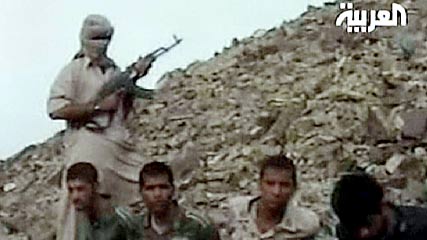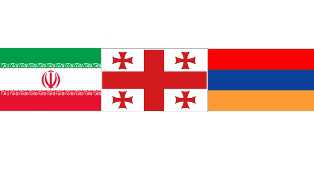It’s unknown if the U.S. and other world powers have agreed to the proposal. The move is seen as an effort to put diplomatic pressure on Washington and its allies.
By Borzou Daragahi, Los Angeles Times
Reporting from Amman, Jordan —
Iran agreed to talks with the United States and other world powers on the Islamic Republic’s nuclear program, provided negotiations take place in neighboring Turkey, officials said Sunday. The offer probably was meant to put diplomatic pressure on the U.S. and its allies.
There was no word on whether the U.S. or other world powers had approved of the proposal. European Union foreign policy chief Catherine Ashton had previously proposed Vienna, home to the International Atomic Energy Agency and many diplomats familiar with the Iranian nuclear program, as the venue for talks.
But Turkey’s semiofficial Anatolian news agency quoted Foreign Ministry officials as saying that “parties had agreed in principle to hold the talks in Turkey,” though no date or specific site has been set.
Restaurant.com: Get $25 gift certificates for $3 each >>
“We told our friends in Turkey two or three days ago that we have agreed to meet with five permanent members of the U.N. Security Council plus Germany in Turkey,” Iranian Foreign Minister Manouchehr Mottaki told reporters in Tehran on Sunday, according to local news agencies.
Turkey, a North Atlantic Treaty Organization member that opposed the latest round of United Nations sanctions on Iran, upset the Obama administration this year when it and Brazil cut a deal with Tehran to send about half of Iran’s nuclear fuel supply to Turkey in exchange for plates to power an ailing Iranian medical reactor. U.S. officials accused Turkey and Brazil of undermining the American- and European-led attempt to present a united international diplomatic front against Iran’s nuclear ambitions.
Also, relations between Turkey and U.S. ally Israel, which considers the Iranian nuclear program its top security challenge, have recently reached a new low. Ankara recently added Israel to its list of strategic threats, according to a document leaked to the Turkish media.
Talks between Iran and world powers stalled more than a year ago after Iran did not agree to a plan to send more than half its nuclear fuel supply to Russia and then France in exchange for medical-reactor fuel.
The Obama administration rallied a skeptical Russia and China into supporting a fresh round of international sanctions on Iran, then pressed countries in Europe and other developed nations to impose even harsher unilateral restrictions on trade with Iran.
But the Islamic Republic continued to enrich uranium, even producing some fuel at 20% rates of purity, suitable for the medical reactor but worrisome to arms-control experts. Uranium enriched at higher levels can be used to arm an atomic bomb.
The U.S. and world powers are reportedly planning to offer Iran a proposal similar to the reactor deal offered last year, but with larger quantities and with a stipulation that Iran stop producing the 20%-enriched uranium.
Western diplomats long struggling with Iran over its nuclear program are skeptical that the impending round of talks will succeed. Iranian officials have already begun accusing world powers of stacking the deck against them by complicating the terms of negotiations and putting forth multiple proposals.
“Tehran should pay attention to the fact that we cannot enter negotiations based on different proposals presented by the West,” the Mehr news agency quoted Iranian lawmaker Javad Jahangirzadeh as saying.
[email protected]
Special correspondent Meris Lutz in Beirut contributed to this report.
via Iran nuclear talks: Iran pushes for nuclear talks in Turkey – chicagotribune.com.






